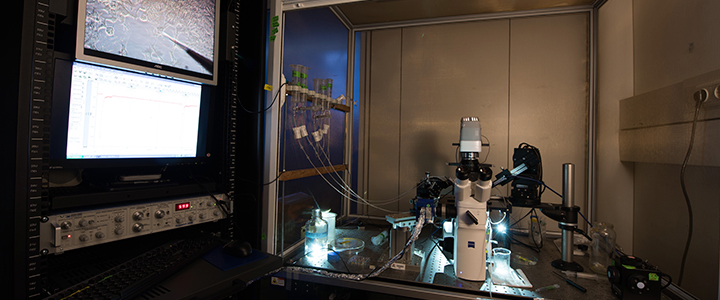Research groups
CELLULAR AND MOLECULAR BASIS OF HUNTIGTON’S DISEASE AND OTHER DISORDERS OF THE BASAL GANGLIA
Parkinson disease and other neurodegenerative movement disorders: clinical and experimental research
IMMUNOPATHOGENESIS OF PARANEOPLASTIC NEUROLOGIC SYNDROME
Pathogenesis of immune-mediated neuronal disorders
Neuropathology
NEUROIMAGING IN DEGENERATIVE DISORDERS (CJNEUROLAB)
MALAGELADA’S LAB
ALZHEIMER’S DISEASE AND OTHER COGNITIVE DISORDERS GROUP
Representative of the research area
Dr. Xavier Gasull
Department of Biomedicine
xgasull (at) ub.edu
Neurodegenerative diseases are usually linked with aging. Thus, nowadays there is an important increase in these disorders with a strong social and economical impact in our society.
Unfortunately, the majority of therapeutic interventions available are merely symptomatic, often with very limited response, whereas disease-modifying and neuroprotective or neuroregenerative treatments are only experimental with precedents in human clinical trials having been unsuccessful so far.
The research area of Experimental Neurology is focused on the study of the nervous system in normal conditions and during neurologic disorders. A close collaboration between basic neuroscientists and clinical neurologists is already established in the Institute of Neurosciences . The Institute, together with the university hospitals, provides a good environment to perform studies about the correlation between genetic markers, cerebrospinal spinal fluid biomarkers and structural, functional and molecular imaging in patients with movement disorders, dementia, autoimmune synaptic disorders and other neurological disorders. Furthermore, the study of the molecular and biological bases of Alzheimer’s disease, Parkinson’s disease, Huntington’s chorea, and multiple sclerosis in preclinical stages can provide information for diagnosis, prevention and treatment for these neurological diseases.





